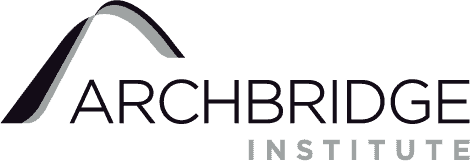This article was originally published in the Gazette
Professional regulations, like occupational licensing, often discourage work by making it harder to enter professions.
As the economy recovers from the pandemic, businesses across Iowa are struggling to fill job openings. But at the same time, there are still many people out of work. Well-meaning regulations are one of the factors playing a role in this mismatch, and policymakers should redesign them to minimize the costs of regulations and let people get back to work.
Across the country, businesses are finding it hard to hire workers, and the Hawkeye state is no exception. There are currently over 85,000 job openings in the state. Many of these positions have been open for months because of a lack of candidates. Consumer demand has rebounded from the depths of the COVID-19 recession, the issue now has become a shortage of workers willing to reenter the labor force.
At the same time, a significant number of Iowans are out of work. The unemployment rate is lower than the U.S. average, at 4.1 percent. However, this is higher than its pre-COVID-19 level, which fell to as low as 2.5 percent. But this doesn’t tell the whole story. The number of people working or actively looking for work still is much lower than before the pandemic.
Many are sitting on the sidelines. For some, there may be lingering concerns about COVID-19. But others are unable to find a job that meets their needs.
Business leaders and policymakers have been proactive, trying to find ways to help get people back to work. But we shouldn’t just rely on new government programs. We can also look to reforming current regulations already in place to ensure that they don’t discourage work.
Professional regulations, like occupational licensing, often discourage work by making it harder to enter professions. These regulations often have laudable goals, like protecting consumers. But their design can also be costly.
For example, occupational licensing laws can block people from entering the labor force. Licensing requires that aspiring professionals meet education and training requirements, pass exams, and pay fees, before being allowed to legally work. For people who lack a college degree, currently have a low income, or were convicted of a crime, these requirements can make it nearly impossible to enter these professions. Licensing laws reduce entrepreneurship, and make it difficult for people looking to change careers.
Occupational licensing is significant in Iowa. It is the 12th most broadly licensed state. Over 24 percent of the labor force requires a license in order to work, which is the second-highest in the country. Economists estimate that Iowa loses 48 thousand jobs annually due to licensing.
Over the past few years, Iowa has made some reforms for policymakers to build off of. In 2020, Iowa passed universal recognition of out of state licenses. Now, a licensed professional moving to Iowa can begin practicing without going through the full application process, making it easier for people to relocate to Iowa, a state with lower than average population growth. The bill also made it easier for individuals with criminal records to obtain a license, only blocking them from jobs where their conviction is related to job performance. Finally, Iowa recently changed their barbering laws to allow barbers to operate mobile barbershops, providing a new path for entrepreneurs.
But with so many job openings and so many out of work, there is more to be done. We should ensure that regulations are designed so that people that are out of work are not blocked with costly and unnecessary hurdles. It’s important to get regulation right, so consumers have protection and we’re not stopping entrepreneurs, businesses, and workers.
It simply doesn’t make sense to require aspiring barbers and cosmetologists in Iowa to complete 2,100 hours of education and training.
Oftentimes, a more targeted form of regulation is better suited to meet the goals of occupational licensing. For instance, if the cleanliness of facilities were a concern, inspections would be more effective than the blunt instrument of licensing. In other cases, certification may be appropriate. Certification allows people to freely enter professions and offer their services, but limits the use of the title to those who have met the requirements for certification. Periodic independent reviews of occupational licensing would offer an opportunity to make sure that regulation is right-sized.
Another possibility is the Right to Earn a Living Act. This law allows professionals or aspiring professionals to petition the licensing board to change requirements, and boards must demonstrate why the particular requirement is necessary to protect the public.
The economic disruption from COVID-19 has been significant. Businesses are struggling to find workers, and at the same time, many are out of work. There is no one simple solution to our current problems. But one simple reform that would help people get back to work is to remove unnecessary regulations, redesigning them in a less costly way.
Conor Norris is a research analyst and Edward Timmons is director of the Knee Center for the Study of Occupational Regulation.


